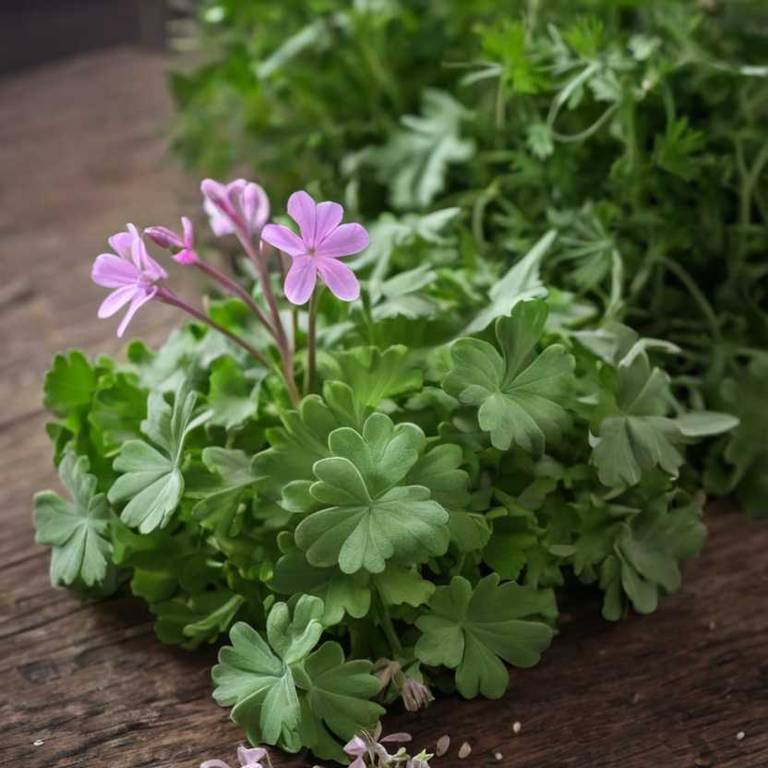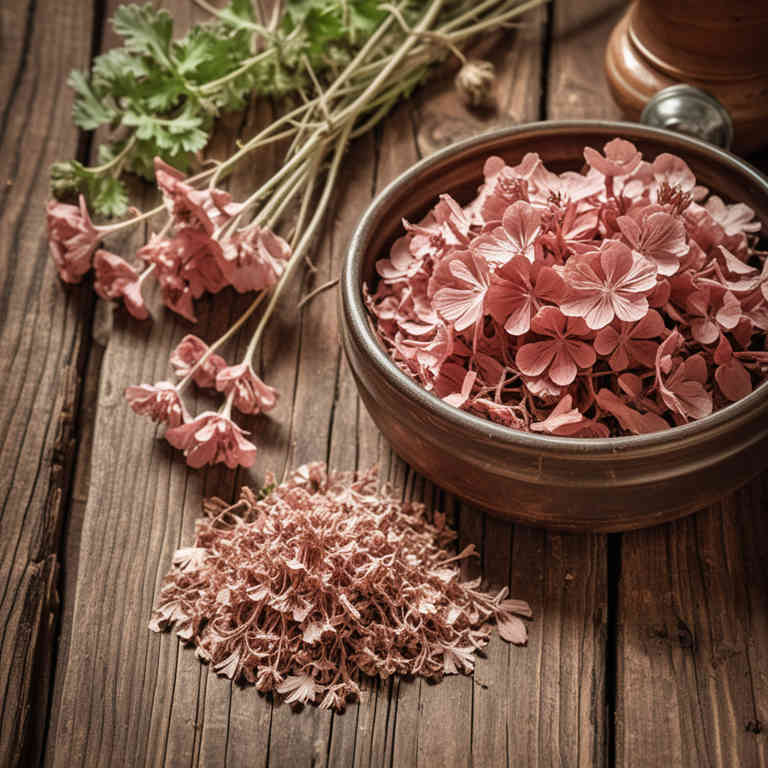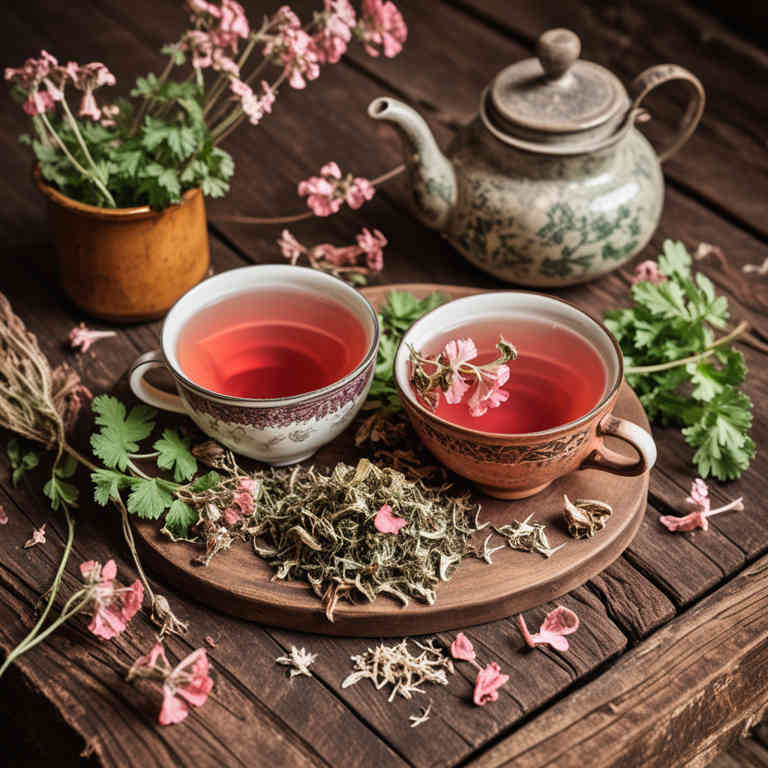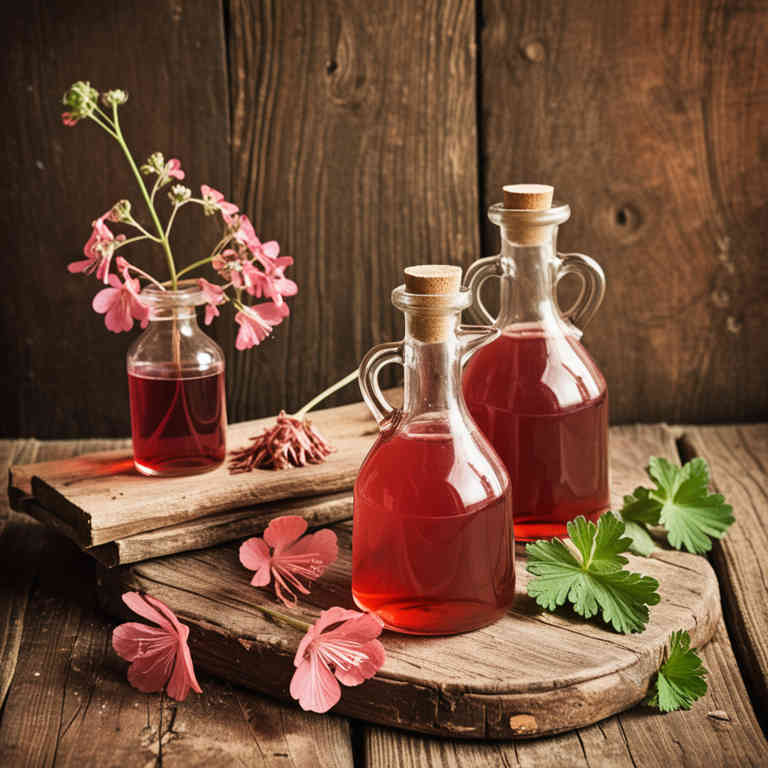10 Best Pelargonium Sidoides Preparations

The best medicinal preparations of Pelargonium sidoides are decoctions, tinctures, capsules, teas, and syrups, each offering unique benefits for therapeutic use.
Decoctions involve boiling the root to extract its active compounds, while tinctures are alcohol-based extracts that provide concentrated medicinal properties.
Capsules offer a convenient and standardized form for easy consumption, and teas are a gentle way to incorporate the herb into daily routines.
Syrups are particularly useful for children or those with swallowing difficulties, ensuring easy administration.
These preparations are widely used to support respiratory health and immune function.
Below there's a list of the 10 best herbal preparations of pelargonium sidoides for medicinal purposes.
- 1. Decoctions
- 2. Tinctures
- 3. Capsules
- 4. Teas
- 5. Syrups
- 6. Lozenges
- 7. Creams
- 8. Linctuses
- 9. Mucillages
- 10. Oinments
1. Decoctions
Pelargonium sidoides decoctions is commonly used to treat respiratory tract infections, including coughs, colds, and bronchitis.
This herbal preparation is also used for its anti-inflammatory and antimicrobial properties to alleviate symptoms of upper respiratory tract infections. The most common medicinal uses include the treatment of sore throat, sinusitis, and other inflammatory conditions of the respiratory system. Bioactive constituents such as polyphenols, flavonoids, and triterpenoids are believed to contribute to its therapeutic effects.
These compounds exhibit antioxidant, antiviral, and immunomodulatory activities, supporting its traditional and modern use in herbal medicine.

2. Tinctures
Pelargonium sidoides tinctures is commonly used to treat respiratory tract infections, including acute bronchitis, sinusitis, and coughs.
These tinctures are also used for symptoms associated with the common cold and upper respiratory tract infections. The most common medicinal uses include alleviating inflammation, reducing mucus production, and supporting immune function. The bioactive constituents responsible for these effects include polyphenols, tannins, flavonoids, and essential oils, which possess antimicrobial, anti-inflammatory, and antioxidant properties.
These compounds work synergistically to provide the plant's therapeutic benefits.

3. Capsules
Pelargonium sidoides capsules is commonly used to treat respiratory tract infections, including coughs, bronchitis, and the common cold.
The herbal preparation is widely recognized for its ability to reduce inflammation and enhance immune function. It is often used to alleviate symptoms of upper respiratory tract infections and may help shorten the duration of illness. The bioactive constituents responsible for its medicinal properties include polyphenols, flavonoids, and triterpenoids, which exhibit anti-inflammatory and antimicrobial effects.
These compounds work synergistically to support the body's natural defenses against pathogens.

4. Teas
Pelargonium sidoides teas is commonly used to treat respiratory tract infections, including coughs, bronchitis, and the common cold.
This herbal preparation is also used for alleviating symptoms of inflammation and to support immune function. The most common medicinal uses include addressing upper respiratory tract infections, sore throat, and nasal congestion. Bioactive constituents such as polyphenols, flavonoids, and tannins are believed to contribute to its anti-inflammatory, antimicrobial, and immunostimulant properties.
These compounds help reduce mucus production, combat pathogens, and enhance the body's natural defenses.

5. Syrups
Pelargonium sidoides syrups is commonly used to treat respiratory tract infections, including coughs, bronchitis, and upper respiratory tract infections.
This herbal preparation is widely recognized for its ability to alleviate symptoms associated with colds, sore throats, and even more severe conditions like pneumonia. The most common medicinal uses of this syrup include reducing inflammation, boosting immune response, and helping to clear mucus from the airways. The bioactive constituents responsible for its medicinal properties include polyphenols, tannins, and flavonoids, which exhibit antimicrobial, anti-inflammatory, and antioxidant effects.
These compounds work synergistically to support the body's natural defenses against infections.

6. Lozenges
Pelargonium sidoides lozenges is commonly used to treat respiratory tract infections, including coughs, sore throats, and symptoms of the common cold.
These lozenges are widely recognized for their ability to reduce inflammation and alleviate symptoms associated with upper respiratory tract infections. The most common medicinal uses include treating acute bronchitis, pharyngitis, and rhinosinusitis. The bioactive constituents responsible for its medicinal properties include polyphenols, flavonoids, and triterpenoids, which exhibit antimicrobial, anti-inflammatory, and immunomodulatory effects.
These compounds work synergistically to support the body's natural defenses against viral and bacterial infections.

7. Creams
Pelargonium sidoides creams is commonly used to treat respiratory and skin infections due to its antimicrobial and anti-inflammatory properties.
These creams are frequently applied for conditions such as bronchitis, sinusitis, and urinary tract infections, as well as for skin issues like eczema and wounds. The most common medicinal uses include alleviating symptoms of respiratory tract infections and supporting the healing of minor skin irritations. The bioactive constituents responsible for these effects include polyphenols, tannins, and flavonoids, which exhibit antimicrobial, antioxidant, and anti-inflammatory activities.
These compounds work synergistically to enhance the body's immune response and reduce inflammation.

8. Linctuses
Pelargonium sidoides linctuses is commonly used to treat respiratory tract infections, particularly in children.
It is often prescribed for symptoms such as coughing, sore throat, and bronchitis. The preparation is believed to have antimicrobial and anti-inflammatory properties that help reduce mucus production and ease breathing. The most common ailments treated include acute bronchitis, common colds, and upper respiratory tract infections.
The bioactive constituents responsible for its medicinal effects include flavonoids, tannins, and iridoids, which contribute to its antiviral, antibacterial, and expectorant actions.

9. Mucillages
Pelargonium sidoides mucillages is commonly used to treat respiratory tract infections, including coughs, bronchitis, and upper respiratory tract infections.
The mucillages, which are gel-like substances extracted from the plant, are valued for their anti-inflammatory and antimicrobial properties. They are often used in herbal medicine to alleviate symptoms such as sore throat, nasal congestion, and excessive mucus production. The bioactive constituents include phenolic compounds, saponins, and flavonoids, which contribute to its therapeutic effects.
These components help reduce inflammation, inhibit pathogen growth, and support immune function.

10. Oinments
Pelargonium sidoides oinments is commonly used to treat respiratory tract infections, including coughs, bronchitis, and sinusitis.
These oinments are often applied topically to reduce inflammation and soothe irritated tissues. The most common medicinal uses include alleviating symptoms of colds, flu, and upper respiratory infections. Bioactive constituents such as iridoids, flavonoids, and phenolic compounds are believed to contribute to its anti-inflammatory and antimicrobial properties.
These compounds help to reduce mucus production and enhance immune response, making the oinment an effective natural remedy for respiratory ailments.
